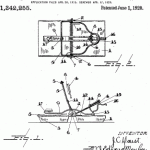 Ever since there the appearance of search engines, website owners have been trying to find ways to make their sites show up more prominently in search results, while search engine managers have worked for a different goal altogether: to connect users with the most relevant information in the fewest keystrokes.
Ever since there the appearance of search engines, website owners have been trying to find ways to make their sites show up more prominently in search results, while search engine managers have worked for a different goal altogether: to connect users with the most relevant information in the fewest keystrokes.
The two goals aren’t necessarily at odds, but they’re definitely different. Historically, web managers have been powerfully tempted to use whatever sugary coating they could to attract the web’s spiders, while the search engine managers keep trying to get past the sugary outer layer and find nuggets of actual nutrition.
They’ve gotten pretty good at it, and will only get better.
 The old saw, “Build a better mousetrap and the world will beat its way to your doorstep.” wasn’t as valid in the early days of web searching as it is now because there just wasn’t enough data out there or search engine intelligence to figure out what a better mouse trap smelled like. Now it knows. In fact, it knows before the mice do. It’s that good.
The old saw, “Build a better mousetrap and the world will beat its way to your doorstep.” wasn’t as valid in the early days of web searching as it is now because there just wasn’t enough data out there or search engine intelligence to figure out what a better mouse trap smelled like. Now it knows. In fact, it knows before the mice do. It’s that good.
So, while there was a time when putting “better mouse trap” in a webpage’s metadata would get Google, Yahoo, or Bing’s attention, you now have to be able to prove it.
What constitutes proof? Well, in scientific circles, we’d say that bold claims would have to survive peer review. In the whole wide web, it’s tougher than that, partly because the reviews aren’t being offered by “peers,” and partly because the number of possible reviewers is vast and varied, both in perspective and in place of publication.
Search engines now routinely mine all the social media you know and love for relevancy indicators on web content. They mine shopping sites, starting with Amazon, and they watch the news, blogs, and special interest sites to see what’s good, bad, and ugly. In this case, ugliness is what a search engine perceives as dissonance between a content provider’s claims and the content recipient’s appraisal.
So, if you think you can get away with blowing smoke, it’s going to get in your eyes in short order.
Now, that doesn’t mean that there’s no place for hyperbole in self promotion. In fact, it’s essential that you communicate your genuine excitement about your content, or product, in your communications. You want to get the word out through all the mediums you can, and you want to set the world on fire with excitement about what you’re offering. You just have to be able to back it up.
And not just you. Your word is suspect, both to search engines and to anyone in your actual target audience. What you really want is to get other people talking about how much they like your product, which means that what you really want is a product that people like.
 So, be sure that when the world flocks to your door to buy that mousetrap that they don’t go away with the feeling that something other than the cheese smells bad. Because no matter where they share that opinion, it will trickle back into the web’s consciousness and come back to nibble away at your credibility, and let someone else get away with all the cheese.
So, be sure that when the world flocks to your door to buy that mousetrap that they don’t go away with the feeling that something other than the cheese smells bad. Because no matter where they share that opinion, it will trickle back into the web’s consciousness and come back to nibble away at your credibility, and let someone else get away with all the cheese.